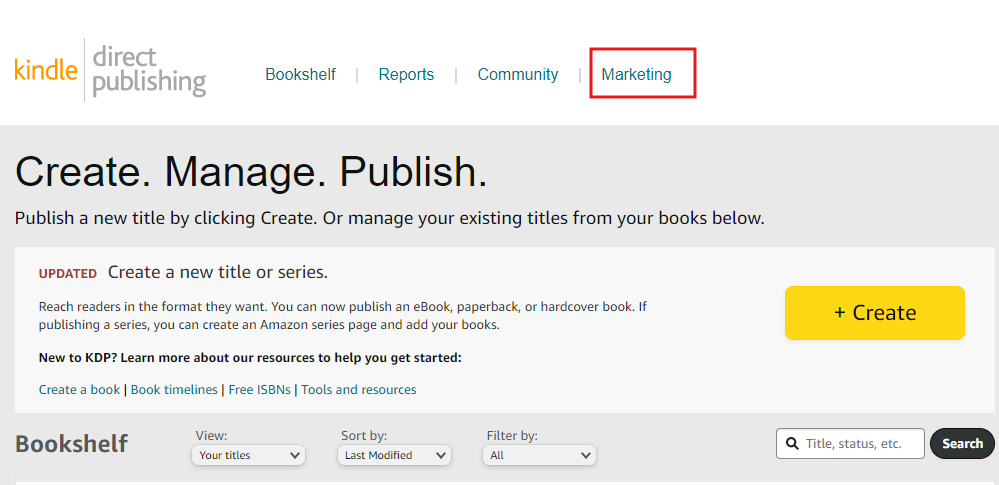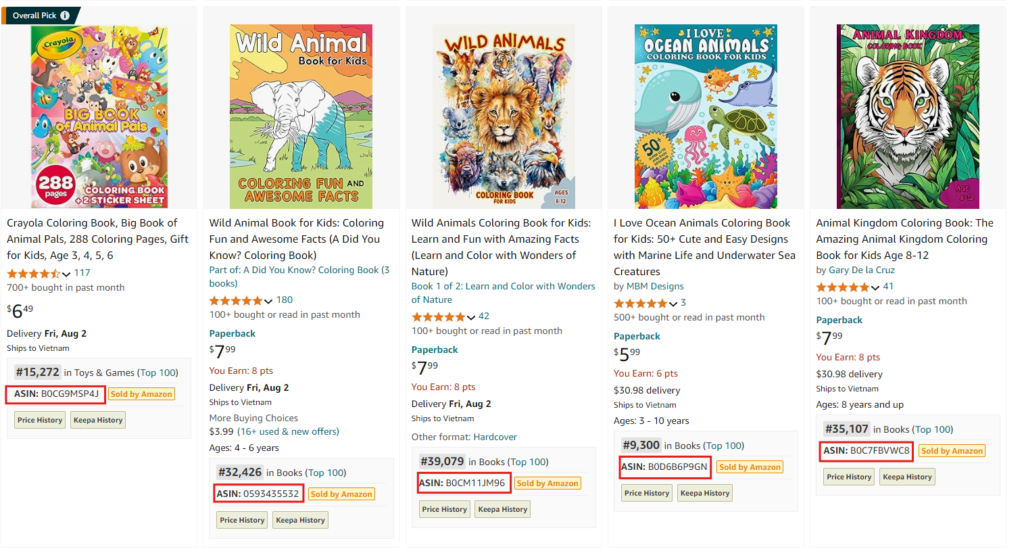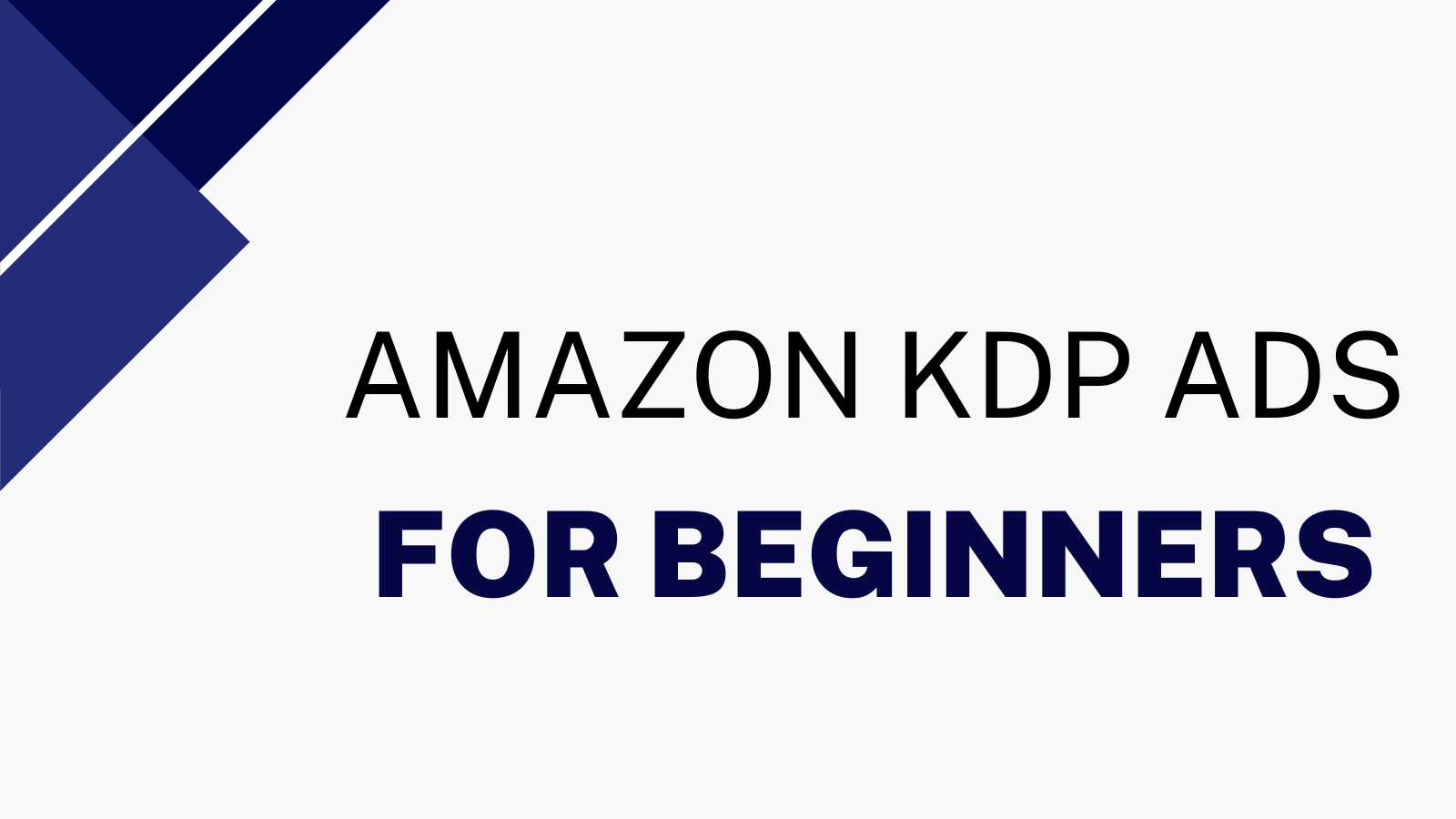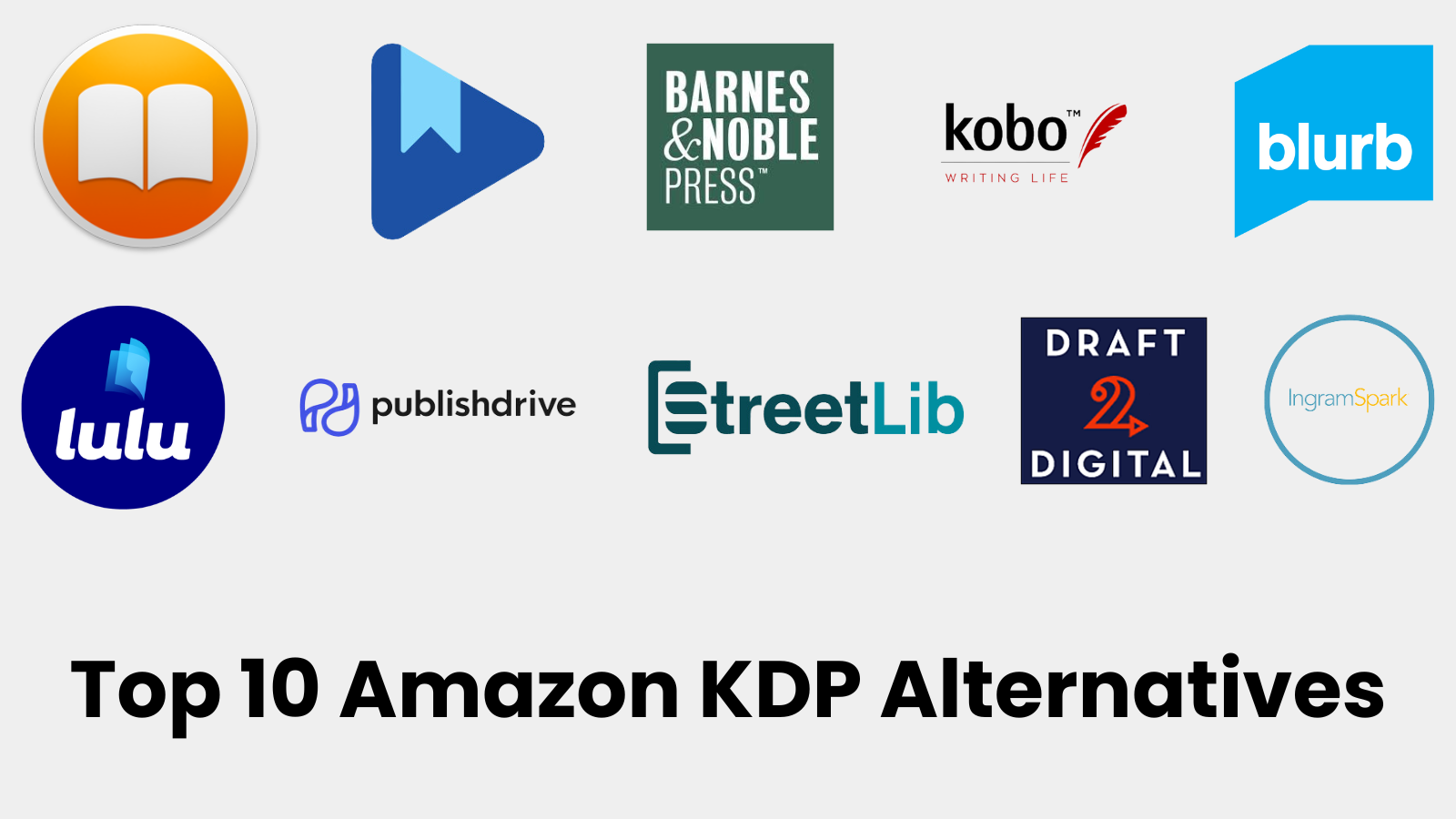In this step-by-step tutorial, you’ll learn how to set up a simple and proven Amazon KDP ads strategy for your business. Discover the key campaigns to run. Learn how to improve your ads and do this as you scale your publishing business.
Table of Contents
Amazon KDP Ads Tutorial for Beginners
Understand the Basics of Amazon Ads
Before diving into Amazon KDP ads setup it’s crucial to understand the basics of Amazon ads. Here is a breakdown of what you need to know to get started:
The Importance of Amazon Ads
Amazon ads help push your book up in ranking, leading to increased organic sales. Every sale, whether organic or through ads, improves your organic ranking, resulting in more sales. Running ads is the fastest way to get results in your business.
Why You Should Run Ads?
Running ads is not mandatory, but it’s highly recommended as it helps you achieve results much quicker. It’s a win-win situation as it increases organic sales and improves your overall ranking on Amazon.
The Mindset for Running Ads
When it comes to running Amazon ads, it’s essential to have a strategic mindset. Understanding the impact of ads on your book’s performance and sales is crucial for success.
Set Up a Manual Targeting Keyword Campaign
Setting up a manual targeting keyword campaign is crucial for training Amazon on what your book is about. This step is essential for achieving better results with your Amazon KDP ads setup. Below, I’ll guide you through the process of creating a manual targeting keyword campaign for your Amazon ads.
Accessing Amazon Ad Console
Access the ad console by going to your KDP dashboard, clicking on “marketing”, and then navigating to Amazon ads. This will lead you to the ad console where you can start the campaign setup process.

Understanding the Timing for Automatic Targeting Campaign
Before diving into setting up the automatic targeting campaign, it’s important to understand the timing. Amazon needs time to gather sales data and understand the relevance of your book. So, start with the manual targeting campaigns. Then, switch to the automatic targeting campaign after two weeks. This allows Amazon to better understand your book’s niche and audience.
Creating a Manual Targeting Keyword Campaign
Begin by choosing relevant keywords for your book. Use the search bar on Amazon to search for keywords related to your book’s niche. You can use tools like the AMZ Suggestion Expander to gather a wide range of keyword suggestions. Once you have your list of keywords, proceed to create a campaign by clicking on ‘Create Campaign’ and then ‘Sponsored Products’. Choose ‘Standard Ad’ and search for your book. Click on ‘Manual Targeting’ and input the list of keywords you’ve collected.

Setting Bid and Budget
When setting the bid for your keywords, consider the content type of your book. For high-content books, start at 65 cents. For low or medium-content books, start lower, at 30 cents. Additionally, set a daily budget that allows for effective data collection and optimization. A higher budget enables quicker data collection and optimization.
Campaign Name and Bidding Strategy
Provide a descriptive campaign name that includes the type of campaign and the book format (e.g., “Fashion Coloring Book Manual Keyword”). For the bidding strategy, always choose ‘Dynamic bids down only’ as it is the most conservative and prevents overspending.
By following these steps, you can create a robust manual targeting keyword campaign for your Amazon KDP ads setup. This approach will help train Amazon to understand the relevance of your book and improve the performance of your ads.
Set Up a Manual Targeting Product Campaign
After setting up the manual targeting keyword campaign, the next step is to create a manual targeting product campaign. This will further optimize your Amazon KDP ads setup. This campaign will allow you to target specific books and ASINs that are relevant to your book’s niche. Below, I’ll guide you through the process of creating a manual targeting product campaign for your Amazon ads.
Collect ASINs of Ranking Books
Start by searching for your main keyword on Amazon and collecting the ASINs of the books that are ranking on page one. You can do this manually by copying the ASINs into a notepad, or you can use a plugin like the ASIN fetcher to gather the ASINs more efficiently.

Access Amazon Ad Console
Once you have the list of ASINs, navigate to the Amazon ad console by clicking on ‘Sponsor Products’ and then ‘Standard Ad’. Find your products and click on ‘Manual Targeting’ to begin setting up the product targeting campaign.
Choose Product Targeting
When setting up the campaign, select ‘Product Targeting’ to indicate that you want to target specific products on Amazon. This will allow you to input the list of ASINs you have collected and create a targeted campaign based on those products.
Customize Bids and Budget
Adjust the bidding strategy and budget for your product targeting campaign based on the content type of your book. Consider starting with a bid of 30 cents for low or medium-content books, and 65 cents for high-content books. Additionally, set a daily budget to allow for effective data collection and optimization.
Add ASIN Targets and Campaign Settings
Input the list of ASINs you collected into the campaign and ensure that they are added as ‘expanded’ targets. It’s important to adhere to the recommended limit of 30 targets per campaign to maintain campaign effectiveness. Finally, select ‘Dynamic bids down only’ as the bidding strategy and choose the appropriate campaign type, such as ‘book title’ for the ad type.
By following these steps, you can create a targeted product campaign to further optimize your Amazon KDP ads setup. This approach will help you target the right books and ASINs. It will improve your ads and boost your book’s visibility on Amazon.
Set Up an Automatic Targeting Campaign
You ran your first manual targeting campaigns for two weeks. Now, set up an automatic targeting campaign to improve your Amazon KDP ads. Below, I’ll guide you through the process of creating an automatic targeting campaign for your Amazon ads.
Access Amazon Ad Console
Access the ad console by navigating to your KDP dashboard, clicking on marketing, and then selecting Amazon ads. This will take you to the ad console where you can begin setting up the automatic targeting campaign.
Select Automatic Targeting
Within the ad console, choose ‘Sponsored Products’ and then ‘Standard Ad’. Next, find your product and select ‘Automatic Targeting’ to indicate that you want to run an automatic targeting campaign for your book.
Adjust Bid and Budget
When setting up the automatic targeting campaign, adjust the default bid. This will optimize your ad performance. While the default bid may be suitable, you can choose a bid that aligns with your budget and advertising goals. Additionally, set a daily budget that allows for effective data collection and optimization.
Campaign Name and Bidding Strategy
Provide a descriptive campaign name that includes the type of campaign and the book format (e.g., “Fashion Coloring Book Auto”). For the bidding strategy, choose ‘Dynamic bids down only’. This will prevent overspending and ensure a conservative approach to bidding.
By using an automatic targeting campaign, you can refine your Amazon KDP ads setup. This will maximize the visibility and sales of your book on Amazon.
Find and Scale Winning Keywords and Products
After running your first manual and auto targeting campaigns, you must find the winning keywords. They are the products that drive sales. These winning targets are the ones you’ll want to focus on and scale to further optimize your Amazon KDP ads setup. Here’s how to find and scale winning keywords and products for your ad campaigns:
Identify Winning Keywords and Products
After running your initial campaigns for a few weeks, review the data. Look for keywords and products that led to more than three orders. These are your winning targets that are driving conversions and should be prioritized for scaling.
Copy Winning Targets to Your List
Once you’ve identified the winning keywords and products, copy them into your list for scaling. These targets will form the basis of your scaled campaigns and will be used to create new ad sets for further optimization.
Set Up Scaled Campaigns
Go to the sponsor products section and set up new ad campaigns using the winning keywords and products. Choose ‘Manual Targeting’ and ‘Keyword Targeting’ for the keyword scale campaign. Use ‘Product Targeting’ for the product scale campaign. When entering the winning keywords, select ‘Exact’. This ensures precise targeting based on the proven converting keywords.
Adjust Bids for Scaled Campaigns
The winning keywords and products convert. So, consider bidding a little more to maximize their performance. Start with a higher bid, such as 60 cents, to capitalize on the conversion potential of these targets. Also, make sure the number of targets per campaign stays within the recommended limit. This will keep the campaigns effective.
Refine Bidding Strategy
When setting up the scaled campaigns, refine the bidding strategy based on the performance of the winning targets. Consider a more aggressive bidding strategy if the targets have consistently driven conversions. Also, provide a descriptive campaign name. It should show the campaign type and book format. This will keep your ad account organized and clear.
Follow these steps. You can find winning keywords and products. Then, scale your ad campaigns to maximize their performance. This approach will let you focus your ad spend on the best targets. It will also help you improve your Amazon KDP ads setup. This will boost your visibility and sales on Amazon.
Optimize Your Campaigns
After setting up your Amazon KDP ad campaigns, you must optimize them. This is crucial to ensure the best performance and return on investment. Here are the key steps to optimize your campaigns effectively:
Minimum Thresholds for Optimization
Only optimize your campaigns if they have a minimum of 1,000 impressions and 10 clicks per target. This ensures that you have sufficient data to make informed optimization decisions.
Moving Winning Keywords
Continuously move winning keywords from your initial campaigns to your scale campaigns. This allows you to focus your ad spend on the most effective keywords and maximize their performance.
Cost Analysis and Bid Adjustments
If your ACOS is above your break-even point, consider lowering the bids. Lower them below the cost per click (CPC) to make more profit. Conversely, if your ACOS is below break even, increase the bid by 3 to 5 cents to capitalize on profitable keywords.
Regular Optimization Schedule
Optimize each target in your campaigns at least twice a week. This ensures that you are always improving your ad performance. It helps you get the most from your campaigns.
By always optimizing your Amazon KDP ad campaigns, you can make them better. You’ll cut waste and boost the visibility and sales of your books on Amazon.
Troubleshoot Common Issues
After setting up your Amazon KDP ad campaigns, you must troubleshoot common issues. This ensures they perform well. Here are some common issues and their solutions:
Low Impressions
If you’re getting few impressions on your campaigns, it could be because you bid too low or target irrelevant keywords or products. To resolve this, check your targets to ensure they are relevant to your book. If they are, consider increasing your bids to improve visibility.
Low Clicks Despite Impressions
Your campaigns get views but no clicks? This may mean your book does not attract potential readers. To address this, consider improving your book cover, title, and reviews to make it more appealing to viewers.
By fixing these issues, you can boost the performance of your Amazon KDP ad campaigns. This will maximize the visibility and sales of your books on Amazon.
Conclusion
In conclusion, mastering Amazon KDP ads is essential for authors looking to increase their book’s visibility and sales on Amazon. This step-by-step tutorial covers the fundamentals, including the importance of running ads, setting up manual and automatic targeting campaigns, and optimizing your efforts. By understanding the basics, setting up effective campaigns, and continuously optimizing and troubleshooting, you can leverage Amazon KDP ads to boost your book’s performance and scale your publishing business.
Read more: KDP Select Review: Is it Worth It?




